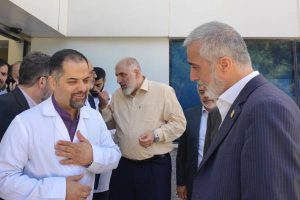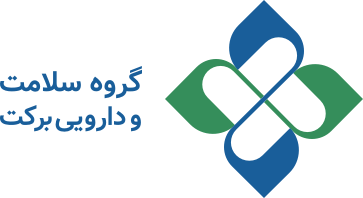
A Conversation with CellTech Pharmed MD on Challenging Path of Cell-Based Therapies
Barkat Health & Pharmaceutical Group: In the field of regenerative medicine and cell therapy, knowledge-based companies in Iran have made remarkable progress. One of these companies is CellTech Pharmed, a subsidiary of the Barakat Health and Pharmaceutical Group and a pioneer in research and the production of stem cell-based medical products. The company has taken significant strides toward the development of innovative therapies.
In this interview, we sit down with Dr. Zahra Ghalanbor, Managing Director at CellTech Pharmed to gain her perspective on the current status of cell therapy in Iran, its challenges and opportunities, and the future outlook for this industry.
The interview is as follows:
Cell Therapy in Iran is at a Stage of Growth
Q: From your perspective, can Iran become an international hub for both commercial and scientific advancements in the field of cell therapy? What challenges must be overcome to reach this position?
A: First, I want to say that the use of the term “maturity” in this context requires careful consideration. If we apply the term to the technology or our position in the market, it’s a somewhat contentious issue. I personally believe that, at best, we are still in the growth phase. In other words, we are far from maturity. However, in response to your second question, yes, Iran can definitely become an international hub for both the commercial and scientific aspects of stem cell therapy.
As you may know, Iran has made significant strides in stem cell research. This success has been driven by several factors, including the dedicated efforts of leading teams such as those at Royan Institute and the special attention and support from the Supreme Leader. In one of his speeches, he emphasized that stem cell research is as important, if not more, than nuclear technology. This level of support has helped Iran reach a special position in the field of stem cell science.
However, your question pertains to cell therapy specifically. This is where the challenges arise. When you enter the therapeutic realm, you must essentially convert your product into a pharmaceutical drug. The pharmaceutical industry in Iran is inherently a follower, and this structure is by design. I’m not presenting this as a negative, but rather as a deliberate governance choice due to its advantages. Now, we have an emerging industry attempting to follow in the footsteps of an industry that has long been established. This discrepancy presents a challenge.
The main challenge we face is regulatory. CellTech Pharmed was founded 11 years ago, even before the first regulations in this field were issued by the Minister. After that, it took ten years to turn those regulations into enforceable guidelines. The longer this gap remains, the further we are from achieving the goals you mentioned in your question.
Addressing Cost & Access to Stem Cell-Based Therapies
Q: What strategies can be implemented to reduce the cost of stem cell-based treatments and facilitate access to them?
A: I’ll address this in two parts, including one aspect beyond Iran. Yes, the costs associated with research, development, and infrastructure creation make these treatments expensive. However, these are one-time treatments, and we expect that the outcome will align with the efficacy we’ve claimed.
So how is the cost covered? Through insurance companies, which recognize that it is more cost-effective to cover a treatment that might cost $4 million upfront than to bear the costs of long-term treatments, such as 30 years of therapy for conditions like cerebral palsy. Although paying this sum might be unaffordable for many families, the regulatory role of insurance companies becomes crucial here. Insurance companies, as economic entities, must assume this responsibility—not as welfare providers. The issue of high drug prices, even for routine medicines, arises because insurance companies are not playing their proper regulatory role, and this extends beyond just cellular therapies; it affects the entire healthcare sector.
Another point to consider is that, whether we label it a “fixed price” or acknowledge subsidies and sometimes non-existent grants, we offer our products at prices far lower than global rates—often providing the same technology at just 10% of the global cost. Some of this may be attributed to our lack of patent laws, leading us to use technologies in ways that resemble copying. However, this is less relevant for cellular products. The real issue lies in the infrastructure costs and the investment required. But, at CellTech Pharmed, due to the policies of the Barakat Health and Pharmaceutical Group, we do not factor these infrastructural costs into our pricing, which is why our prices are considerably lower than global standards.
Reflecting on Last Year’s Achievements
Q: As the year draws to a close, what key achievements has CellTech Pharmed had that you consider a significant milestone, and competitive on a global scale?
A: Given the ten-year regulatory delay, our progress has not been measured by one-year milestones. Unfortunately, our most significant achievements come from efforts that have spanned over a decade and have yet to reach fruition due to regulatory delays. However, the biggest success of the past year, in my view, is that “we have not given up” and continue to move forward. This alone is a major victory.
Over the past year, we put all our efforts into securing approval for a product aimed at treating children with cerebral palsy. The process has been incredibly tough and time-consuming. Our team has witnessed the improvement of these children, even though we know that the effectiveness of the treatment decreases as the children grow older. We have done everything possible to expedite this process, yet we have not yet received approval. But, to me, the greatest achievement is that we are still in the game, still fighting, and still hopeful. We are confident that we will succeed, as the scientific studies backing the effectiveness of the treatment are strong and conclusive. The only issue is that we are caught in the web of a “follower industry,” which demands that a product be approved and commercially available in Western countries before it is even considered. The treatment for cerebral palsy in our children has not been a priority for the West, so this product will be a global first. The decision is now in the hands of our regulators, and we remain hopeful for a favorable outcome.
Research Projects Could Transform Pharmaceutical Industry
Q: You mentioned cerebral palsy. What other research projects are you working on that could potentially transform the pharmaceutical and healthcare industries in the country?
A: I would like to be cautious with the word “transformation” in the context of the pharmaceutical industry. It might imply that we are racing to become leaders in technology and innovation, but a follower industry does not necessarily welcome transformation or innovation. What truly matters to us, and our core mission, is focusing on the treatment of all patients, especially those with rare and difficult-to-treat conditions. Currently, we are working on several research projects. Some of these projects have made great progress, while others are still in the early stages. These projects are particularly critical for diseases that pose greater challenges in our region.
Role of Barakat Health & Pharmaceutical Group
Q: As a pioneer in the pharmaceutical industry, how would you assess the contribution of the Barakat Health and Pharmaceutical Group?
A: The Barkat Health and Pharmaceutical Group has fully played its role in cell therapy. The infrastructure established here is robust and complete. Right now, significant support is being provided for the treatment of patients from the first five socioeconomic tiers. Some of these patients are being treated entirely free of charge through processes within our organization.
Final Thoughts
Q: Any final words from you?
A: I’m not ready to end this discussion yet. Despite all the challenges and what seems to be an even harder road ahead, I believe that the very fact that we are feeling exhausted signals that we are nearing the summit. In these moments, only those with hope and perseverance will succeed in raising their flag proudly at the top.
-
Afghanistan’s Ministry of Public Health Delegation Meets Barkat Pharmaceutical Group Executives
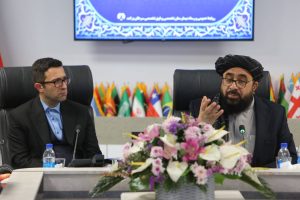
-
Voice of Life in World of News — Redefining Health Journalism in the Information Age

-
Senior Health Officials & Barkat GD Visit Sobhan Oncology
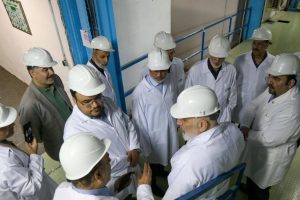
-
Barkat Group specialized meeting
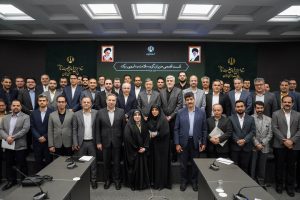
-
Safa Appointed as Barekat General Director
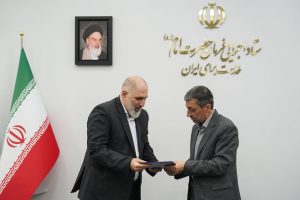
-
Barekat Health & Pharmaceutical Group at the 10th Iran Pharma Exhibition
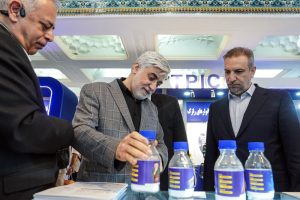
-
Ali Safa visits Sobhan Oncology & Sobhan Darou
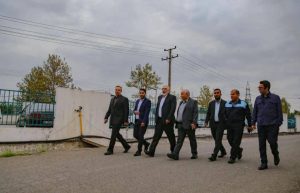
-
Pirsalehi & Safa visit Saman Daroo 8 Knowledge-based Company
